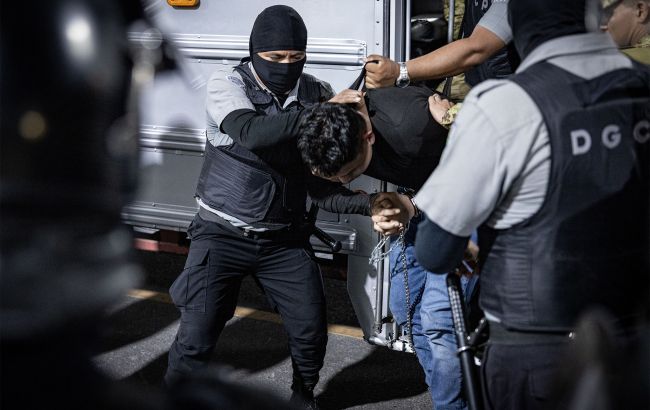Venezuelan migrants deported from US over tattoos mistaken for gang ties
 Salvadoran government receives alleged criminal organization members (Photo: Getty Images)
Salvadoran government receives alleged criminal organization members (Photo: Getty Images)
Hundreds of Venezuelan asylum seekers have been deported from the US to El Salvador under a new Trump policy - many without hearings and based on tattoos unrelated to any criminal activity, USA Today reports. Some disappeared from ICE facilities and later turned up in Salvadoran prisons.
Jefferson José Laya Freites, 33, had a scheduled immigration hearing in Aurora, Colorado, but never appeared - because, as his wife discovered in a viral video, he had been transferred to a Salvadoran prison.
"She saw her husband on video at the Salvadoran prison," said attorney Monique Sherman. "My husband doesn’t even have tattoos," his wife told USA Today. "It’s a kidnapping … What happened to them is a great injustice."
The Biden-Harris administration confirmed that under a $6 million deal, ICE transferred detainees accused of ties to the Venezuelan gang Tren de Aragua. However, there is scant evidence linking most deportees to gang activity.
Law enforcement across several US states confirmed fewer than 135 gang members, while over 200 Venezuelans were deported to El Salvador last week - after the Trump administration defied a judge’s order and removed hundreds of immigrants despite pending legal reviews.
Tattoos and minor offenses used to justify deportations
Families and lawyers say men are being targeted for tattoos unrelated to criminal behavior. Franco José Caraballo, a barber from Texas, was deported despite no criminal record.
His tattoos, including a stopwatch showing his daughter’s birth time and a barber razor on his neck, drew suspicion. "He was complying. He was reporting to ICE. He doesn’t have a criminal record," said his lawyer, Martin Rosenow.
Other deportees include soccer player Jerce Reyes Barrios, accused of gang ties due to tattoos of a soccer ball and rosary, and teenager Anyelo José Sarabia, detained for a rose tattoo with dollar petals.
"None of these people have even been in prison," said activist Kate Wheatcroft. "We’re deeply skeptical of this gang narrative, having compiled 50 cases."
Despite court orders, the Trump administration refuses to comply with court orders to disclose deportation details, citing national security concerns.
The sudden removals have devastated families, raised legal concerns, and spotlighted what immigration defenders call "a human rights injustice."

